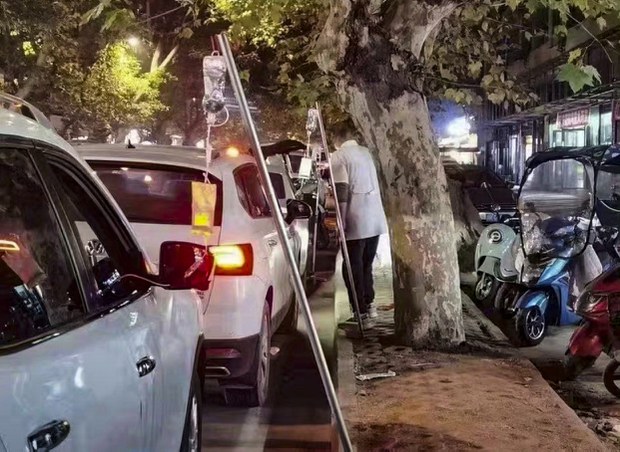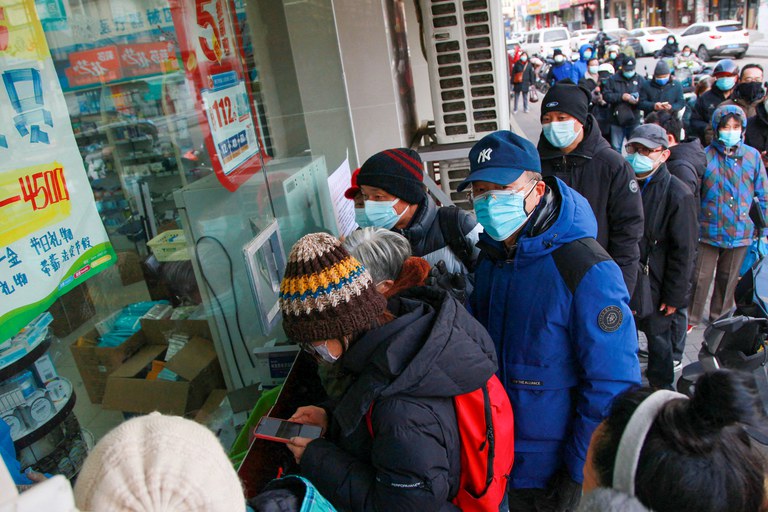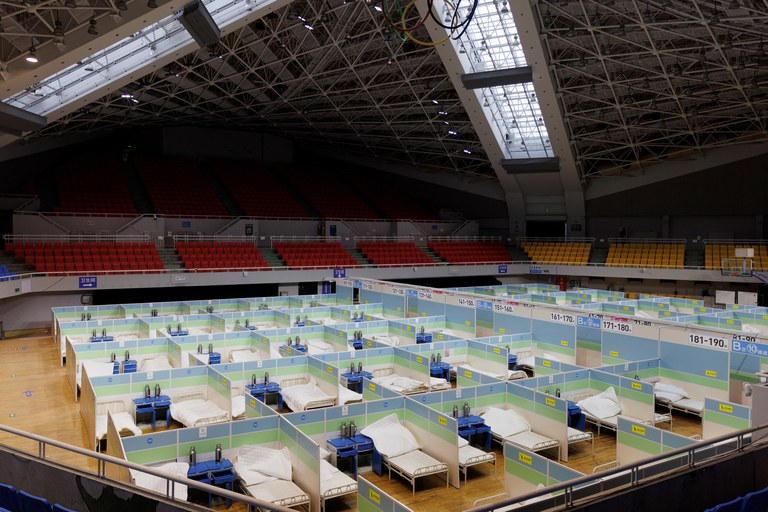Chinese hospitals seek ventilators, medical supplies amid ongoing COVID-19 wave
Share

With hospitals in Wuhan, China, overwhelmed by the COVID-19 surge, patients are being given saline IV drips in their cars.
Hospitals across China are scrambling to source ventilators and other ICU equipment amid a mounting wave of COVID-19 infections after the government dropped widespread testing and targeted lockdowns under the zero-COVID policy, as residents of Wuhan report rampant community transmission of the virus.
A survey of public tender listings on China’s internet over the past two weeks showed that hospitals in nearly all of China’s cities and provinces are now in the market for ventilators and other equipment used to treat patients seriously ill with COVID-19.
The hospitals seeking such equipment appeared to be concentrated in Beijing and northern China, where mortuaries and funeral homes have been overwhelmed in recent days with a weeks-long backlog of bodies awaiting cremation.
The spike in tenders stands in sharp contrast to lackluster sales figures reported until now by major ventilator manufacturers during the zero-COVID policy of lockdowns, mandatory quarantine and mass testing, according to an investigation by Radio Free Asia of their public company records.
A former senior healthcare journalist who asked to remain anonymous for fear of reprisals said hospitals are currently “panic-buying” ventilators and other pieces of equipment.
But she said top-down allocation of anti-COVID funds to build quarantine facilities and finance mass testing contracts had starved local governments and the public healthcare system of the funding needed to properly equip their ICUs to deal with a massive wave of COVID-19 infections.
She suggested that part of the reason behind the recent abandonment of the tight restrictions of zero-COVID was that local governments had simply run out of money.
“There is a run on medical supplies right now,” she said. “Medical resources used to be allocated in an even-handed way by the government.”
“Now, they need to buy supplies but the government won’t give them the money, and of course [local governments] don’t have that money,” the journalist said. “They are all in the red.”
She said some local public hospitals were switching to private, fee-paying status just to stay in operation, citing a hospital in Zhengding county in the northern province of Hebei as an example.
An official in the southwestern city of Chongqing confirmed that she has been struggling to access ventilators since local lockdowns were lifted at the beginning of this month.
“They all suddenly decided to lie flat [do nothing] from Dec. 1, and we were immediately plunged into a shortage of medical supplies,” the official said. “Out of the 17 people working in my office, 15 caught COVID-19.”
China formally ordered the relaxation of COVID-19 restrictions on Dec. 7 following mass anti-lockdown protests that included calls on Communist Party leader Xi Jinping to step down and call elections.
The official said she was unable to buy fever medicines amid a nationwide shortage, let alone source ventilators for people who were seriously ill.
“I am scrambling to try to source ventilators for people who are seriously ill and need them,” she said. “It’s a shame that so much of our manpower, material resources, time and money were spent on lockdowns, keeping people quiet and building so many quarantine camps, which have now all been scrapped.”
“Lying flat means people are left to fend for themselves, including me, and we can’t get anything we need,” she told Radio Free Asia on Tuesday.


‘The leaders can’t admit they were wrong’
A senior medical professional who also requested anonymity blamed arbitrary decision-making and corruption for the current situation.
“These PCR testing companies have made massive amounts of money … they all use intermediary companies to get business, because they need [political] relationships at the local level,” the healthcare professional said. “Someone has to take the blame for this; I guess they’ll arrest a bunch of people.”
“The way things are in China, the leaders can’t admit they were wrong.”
Repeated calls to the National Health Commission rang unanswered during office hours on Tuesday.
An employee who answered the phone at the procurement department of Changsha Central Hospital in the central province of Hunan, which had recently put out an urgent tender for ventilators, declined to comment when contacted by Radio Free Asia, and hung up the phone immediately on subsequent attempts to call them.
A major manufacturer of medical ventilators said they could only give interviews if written questions and background information were provided in advance.


‘Basically, everyone has gotten it’
While Chinese officials have said the lack of mandatory testing has made the virus hard to track accurately, there is plenty of anecdotal evidence of rapid and widespread infection with COVID-19, with many residents of the central city of Wuhan reporting that nearly everyone they know has gotten sick around the same time.
Out of 10 people in Wuhan contacted by Radio Free Asia on Tuesday, eight said they had tested positive.
“I’m positive, and the whole family is too,” a resident who gave only the surname Shen said. “Around 95% of the people we know have tested positive; my younger sister and her family, all three sisters, my aunt and all of my neighbors here where I live.”
“Everyone at work is now testing positive as well — how contagious is that?”
“All of the [figures on the] news broadcasts are fake,” Shen said. “There are seven buildings in my [residential] community, and pretty much all 2,000 of us are infected.”
Many people are still reporting for work unless they have a high fever, Shen said.
“[My wife] went to work despite testing positive; there are about 20 employees at her store, and people only stay home if they have a high fever.”
“She said that all you can hear there right now is coughing, and residents are still going in there to buy still,” Shen said. “That’s what it means when you leave people to fend for themselves.”
Shen appeared to confirm earlier interviewees’ assertion that local governments have run out of money.
“There is no money left to subsidize the grass roots,” Shen said. “Even if there are subsidies, it never gets to the residents.”
“People have so little income now that people have to do some business just to be able to stay alive.”
A resident of Wuhan’s Qiaokou district surnamed Gao said he tested positive 10 days ago.
“Around 90% of the people I know are positive,” he said. “I haven’t recovered yet. My throat hurts, I’m coughing, and I haven’t been able to taste anything for the past 10 days or so.”
“Basically, everyone has gotten it … a while ago we had to do PCR tests every day, but now everyone is sick, and the government and residential community aren’t seeing anyone,” Gao said.
Translated by Luisetta Mudie.







